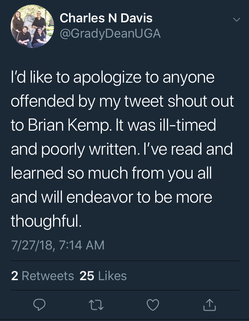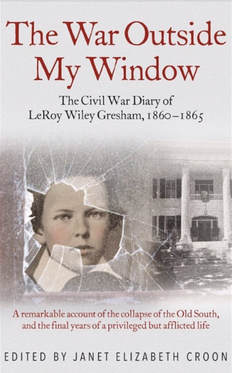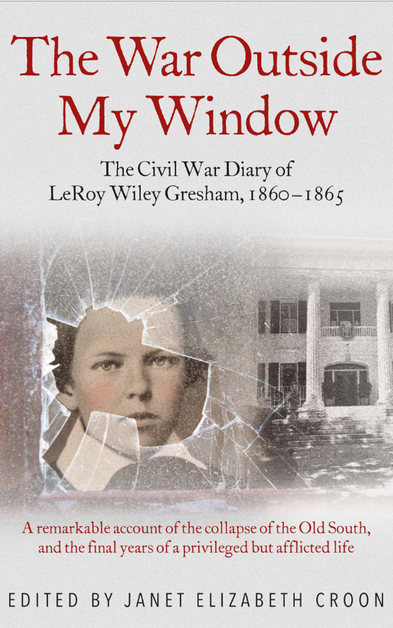|
Sam Burnham, Curator @C_SamBurnham Let's take a good look at the now deleted Most Offensive Tweet of the Day: “I went to high school with GOP guv candidate @BrianKempGA. We played YMCA ball from childhood. Politics be damned. He is a nice guy, always was. Kind to a fault, He’s a friend, always has been, and will be when we’re old(er) and grey(er). That’s how all this should work, people.”  That nasty and hateful tweet, given by the Dean of UGA's Grady College of Journalism ignited a firestorm of protest. Can you imagine the gall and the complete lack of respect for human life that it must require to call someone a "nice guy" or "kind to a fault?" So the dean issued the apology at right. This situation makes me sick to my stomach. I just heard about it tonight. This kind of thing is getting far too common in our deteriorating society. In reality, Charles Davis was assaulted for congratulating a lifelong friend on a major life accomplishment. His encouragement that "politics be damned" and "that's how all this should work, people" is a commentary on our current political tone. He is saying he may not agree with his friend's politics but he's still his friend and he's congratulating him. But there is a growing segment of the Left in America that is bent on dehumanizing their opposition. They throw out labels like "racist," misogynist," "homophobic," or "xenophobic" to assault policies they disagree with, not because the labels fit but because the labels help to strip away the humanity of their opponents. If their opponents aren't human, but rather "fascist" or "Nazi", they are easier to combat. "You don't want to vote for a 'bigot' do you? Then vote for my candidate or just stay home." The irony in their argument is that very definition of bigot is "a person who is intolerant toward those holding different opinions." The very people slinging the bigot label are themselves bigots. Because the only thing they are really slinging the label for is because Brian Kemp is their opponent. Oh, they'll point to some "dog whistle" or some policy that they will twist or contort to make it look racist whatever-ist. But the truth is, they are just bigoted against opposing ideas. The best way to censor those ideas is by stamping them with an "-ist." And it isn't just elections. It's about culture. It goes back to statues, to flags, to holidays, to ceremonies, to historic sites. They have to control the narrative to sell their philosophy. They need to assault the art, the politics, and the structure of the society to control the narrative. That is what this is all about. Charles Davis didn't owe anyone an apology. He didn't do anything wrong. In fact, he took a positive step, he led by example. He softened the tone of politics for a minute. He let politics get in the back seat and put humanity in the driver seat. But the vitriolic response he got is a clue to why the state of our rhetoric is so poisonous. So now we need to add some skepticism to certain terminology. When you hear one of those "-ist" words pop up, be skeptical. Don't just assume it is true. Look for evidence. Investigate to see if it is just a nasty personal attack used when a proper rebuttal could not be made. But also don't return their bigotry in kind. There are plenty of people on both sides of the aisle who want to have a healthy and serious conversation about ways to build a better society. There are also people on both sides who want to silence and cease dissent. Look across the aisle and see a person. Look over there and see someone who has humanity and dignity. Expect to see someone who is nice and kind, and let politics be damned. That doesn't mean agreeing with them, it means letting them be human in your eyes. Because if they aren't human in your eyes, then you can't possibly expect to be human in theirs.
1 Comment
 This episode of the podcast features an interview with Jan Croon, the editor of The War Outside My Window - The Civil War Diary of LeRoy Wiley Gresham 1860-1865. The book is the diary of the young man and his observations of the Civil War and his life during that time. It forms an excellent first-hand account of the war, the life his wealthy family lived beforehand as well as their state of affairs which were the same as those of so many Georgians in the wake of the war. A link to a review of the book can be found here. The link to this podccast episode can be found here. Sam Burnham, Curator @C_SamBurnham To listen to the podcast episode featuring an interview with editor Jan Croon, click here.  "The War Outside My Window - The Civil War Diary of LeRoy Wiley Gresham, 1860-1865" Edited by Janet Elizabeth Croon, Published by Savas Beatie "The War Outside My Window - The Civil War Diary of LeRoy Wiley Gresham, 1860-1865" Edited by Janet Elizabeth Croon, Published by Savas Beatie I am thankful to have had the opportunity to take a look at at such an intriguing work. Only a day after my review copy shipped, a family friend recommended the book pointing out she's a cousin of the author. This is a published diary meaning that, in this case, the author has died and the published work has been completed by an editor who compiled the diary and tried to make it relevant and readable for a modern audience. This puts an effective editor in the position of researcher, dot connector, notation maker, and even translator. The author, LeRoy Wiley Gresham, was 12 years old when he began his diary in 1860. Gresham was a particularly bright young man. He was already an adept writer showed an interest in many subjects, including the gathering clouds of the ominous war to come. The Greshams were an educated family who were among the wealthy of Macon's populace. LeRoy was afflicted with a condition of the spine that left him bedridden. Instead of many of the activities common to other boys his age (which could have included service among the Confederate military ranks) he became an avid reader. He documents the news of each day including reports from the battlefield, from politics, and typically a report of the day's weather. Occasionally an entry might be nothing more than a weather report from the day. in other entries, such as late September, 1863, he relays news of major developments in the war. If you know the names and dates, you know what to expect from the events. But you find yourself interested to read how he reports it. You can see Gettysburg, Chickamauga, Peachtree Creek, and Atlanta, long before they happen. But to see it in the eyes of a young man standing in the path of Sherman's advance gives you a taste of what it must have been like to be standing there yourself. I can imagine that for a person who does not know the specific names and dates, this narrative makes for a great story a first time learner will get caught up in. I was amazed to see how quickly the news traveled then. Reports from battles were often given by the next day, although much of the information was wrong. Casualty numbers and specific people reported dead were wildly inaccurate and he often added corrections as he received new information. He reports Hood killed at Chickamauga, then maybe not dead, then not dead but having lost his leg. The corrections also included the death of Peyton Colquitt, a relative of Gresham's who has been mentioned here before. LeRoy's fortunes seem to track the Confederacy's. At first he has a life of wealth and privilege. Without giving away too much, the family's fortunes, and LeRoy's health, take a dramatic turn in the famine left in Sherman's wake - much like the fledgling nation's. LeRoy's fate and the Confederacy's seem to be metaphorically tied to each other. As for the editing, Janet Elizabeth Croon took a diary from the 1860's with the intent of presenting it to a modern audience. I mentioned "translator" as one of the hats she had to wear. Gresham uses many abbreviations and terms that were familiar to him but that the casual reader might not understand. Carefully added text fills in the gaps between his familiarity and the reader's curiosity. It makes for a seamless read that is easily understandable in 2018. There are extensive footnotes to help the reader understand historic, cultural, familial, and medical terms or allusions. It is evident that Croon put a lot of work into research, documentation, and gathering information that she probably had to learn herself as she went. The notes are so impressive that it pains me to point out there are a very few inaccuracies (ex: 20 May 1864 when Rome, GA is evacuated, our army was at Kingston, GA, not NC). The errors are so rare and minimal and that one so close to home that it caught my attention. Such minimal errors are understandable when the weight of the notes are considered. She did a fantastic job. One of the best things about this book is it puts a first-hand account of the era, and the war specifically, in a form that makes it accessible to an everyday reader. This is a serious historical document that the average person in 2018 can understand. You don't have to be a Civil War scholar or even a historian to appreciate it or enjoy it. The human story involved, the struggle of a youngster who learned to deal with the specter of death at an early age before having to confront his own frail mortality, is touching. In an age where anything Confederate is to be hated and scorned, Gresham reintroduces the humanity of the Southern people into the conversation. He's not a statue or a flag, hes a young boy facing a harsh world and it is easy to become sympathetic to him. Croon does a good job of steering away from bias on either side and presenting only the facts and letting LeRoy tell his first-hand story. And I enjoyed reading it. |
Sam B.Historian, self-proclaimed gentleman, agrarian-at-heart, & curator extraordinaire Social MediaCategories
All
Archives
November 2022
|




 RSS Feed
RSS Feed
